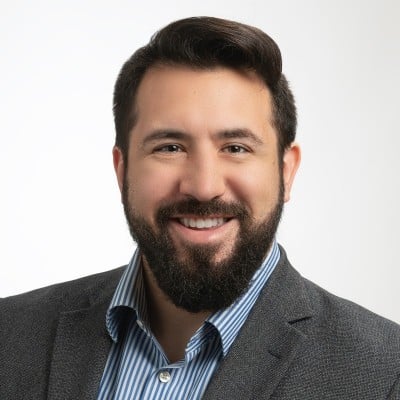
Sasha Cai Lesher-Pérez to join U-M Chemical Engineering in 2022
Sasha Cai Lesher-Pérez will join U-M Chemical Engineering in Fall 2022 as an assistant professor.

Sasha Cai Lesher-Pérez will join U-M Chemical Engineering in Fall 2022 as an assistant professor.
The U-M Department of Chemical Engineering (ChE) is excited to announce that Sasha Cai Lesher-Pérez will join the department in Fall 2022 as an assistant professor in a tenure track appointment.
A former U-M graduate student, Lesher-Pérez has spent the last six years gaining significant industry experience, including a postdoc and positions as an individual fellow researcher and biomedical engineer.
“I am so excited to return to the University of Michigan,” said Lesher-Pérez. “During my PhD, I was fortunate to have a supportive, hyper-collaborative experience that not only was stimulating and engaging, but also kept opening up new opportunities, and eventually led me to pursue an academic career — a very different trajectory than I initially expected.”
“I am so excited to return to the University of Michigan. During my PhD, I was fortunate to have a supportive, hyper-collaborative experience that not only was stimulating and engaging, but also kept opening up new opportunities, and eventually led me to pursue an academic career — a very different trajectory than I initially expected.”
Sasha Cai Lesher-Pérez
Incoming assistant professor, U-M Chemical Engineering
Lesher-Pérez graduated with a master’s and PhD in Biomedical Engineering from U-M in 2015 after obtaining a bachelor’s degree in Biomedical Engineering from the University of Wisconsin, Madison in 2008.
While studying at U-M, his work focused on microfluidic circuits, three-dimensional cultures, and biosensors. Lesher-Pérez was under the supervision of Professor Shuichi Takayama as a National Science Foundation Graduate Research Program Fellow (NSF GRFP).
“My experiences and time at Michigan were foundational to my approach as a scientist and researcher. Knowing the environment and what is possible at Michigan is a great reason to be coming back.”
After graduating with his PhD in 2015, Lesher-Pérez pursued a postdoc as a National Institute of Neurological Disorders and Strokes Recipient and Ford Fellow at the University of California, Los Angeles (UCLA).
Working in the lab of Professor Tatiana Segura, Lesher-Pérez’s work focused on the interface between microfluidic systems and hydrogel microparticles, with the ultimate goal of engineering synthetic hydrogels for modular control of the three-dimensional cell culture environment.
Following his time at UCLA, Lesher-Pérez received a Marie Curie Individual Fellowship. This led to him working at Elvesys SAS, a microfluidic instruments and controls startup based in Paris, France. During this time he worked on the development of microfluidic systems for organ-on-chip and chemical flow reactor platforms using new proprietary thermoplastics which, if successful, could enable significant industrial scale-up.
Most recently, Lesher-Pérez has been working at Intelligent Optical Systems (IOS), a research and development (R&D) organization based in Torrance, California where he serves as the PI for a smart biopsy needle, managing a group of chemists and engineers as well as supporting the development of other medical diagnostic systems.
His future research program at U-M will integrate fluidic controls, biomaterials, and tissue engineering, to incorporate timing into complex culture platforms and establish complex culture systems. These platforms will be used to elucidate the role of dysregulated rhythms with an emphasis on hormonal and metabolic signals. By mirroring the dysregulation caused by chronic stress, a major focus of his future lab will be to begin parametrizing how these stressed rhythms and disrupted signals may lead to disease priming and progression.
“We are thrilled to welcome back Sasha Cai Lesher-Pérez to the University of Michigan,” said Sharon Glotzer, Anthony C. Lembke Department Chair of Chemical Engineering. “Professor Lesher-Pérez brings expertise in the areas of microfluidic circuits, biosensors, and organ-on-chip platforms, and will pursue exciting research combining microfluidics, biomaterials and tissue engineering with application to metabolic and neurological disorders and diseases.”
“I cannot wait to begin working with these amazing researchers (who will shortly be my colleagues!), establish my research program, and to provide support and training for the awesome students during their growth and development as engineers, researchers, and people,” said Lesher-Pérez.